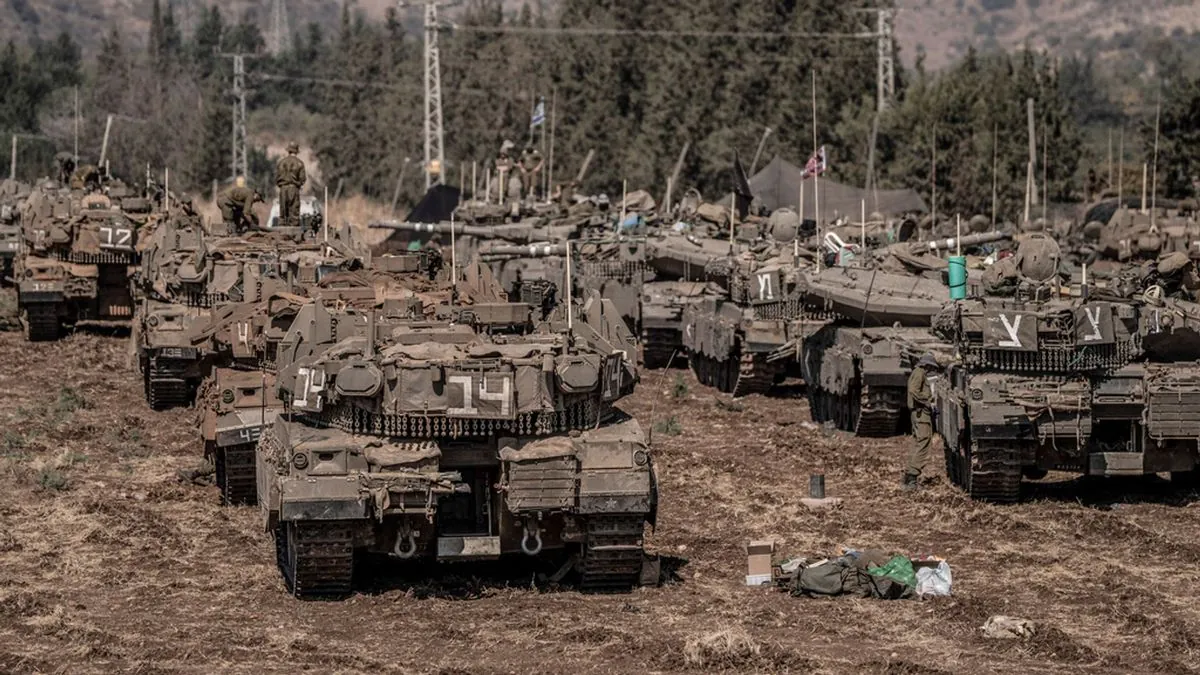Israeli forces are preparing for a limited ground operation in southern Lebanon, focusing on neutralizing Hezbollah's military infrastructure near the border. This development comes as tensions escalate in the region, with both sides exchanging fire and suffering casualties.
Naim Kassem, acting chief of Hezbollah, has pledged to continue the fight against Israel, despite recent leadership losses. The militant group, founded in 1985 during the Lebanese Civil War, has been a significant player in the country's complex political landscape. Lebanon's power-sharing system, based on religious communities, has contributed to the intricate nature of its internal and external conflicts.
Israeli strikes have resulted in over 1,000 fatalities in Lebanon, according to the country's Public Health Ministry. The conflict has led to significant displacement, with the United Nations High Commissioner for Refugees reporting that up to 100,000 people have fled to Syria. This adds to Lebanon's existing challenges as the country hosting the largest number of refugees per capita globally.
The international community has responded to the crisis with humanitarian aid and diplomatic efforts. The European Commission has allocated additional funds to support the Lebanese people, while the United States has maintained a naval presence in the region to monitor the situation.
"There is nowhere in the Middle East Israel cannot reach. There is nowhere we will not go to protect our people and protect our country."
This conflict occurs against the backdrop of Lebanon's ongoing economic crisis, which began in 2019 and has seen the Lebanese pound lose over 90% of its value. The country's once-robust banking sector has faced significant challenges, compounding the difficulties faced by its citizens.
As the situation unfolds, several important global events are on the horizon. Japan is set for snap elections on October 27, 2024, following the appointment of Shigeru Ishiba as the new prime minister. Additionally, Tunisia will hold a presidential election, Kazakhstan will conduct a referendum on nuclear power plant construction, and Brazil will see municipal elections on October 6, 2024.
The current conflict and its regional implications highlight the need for diplomatic solutions and international cooperation. As Lebanon grapples with multiple crises, including environmental challenges and infrastructure problems, the path to stability remains complex and fraught with obstacles.
